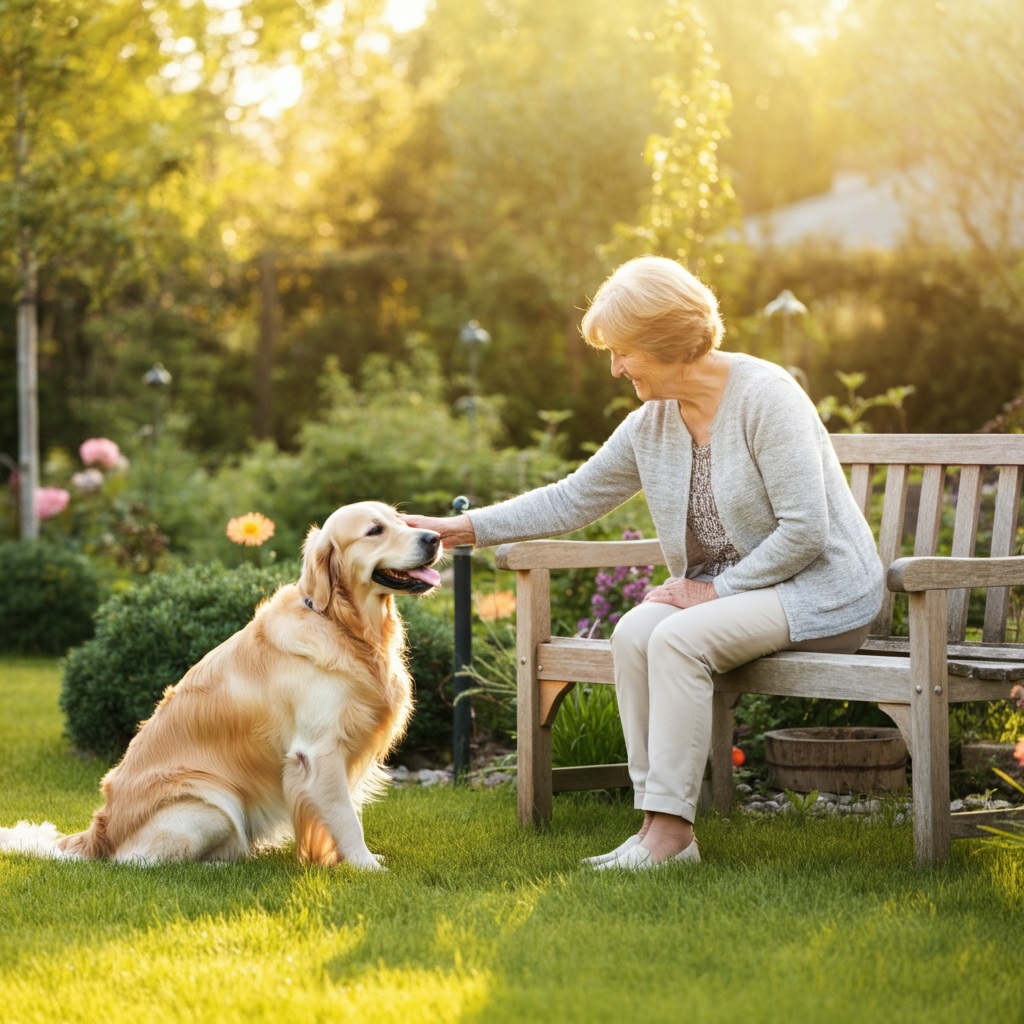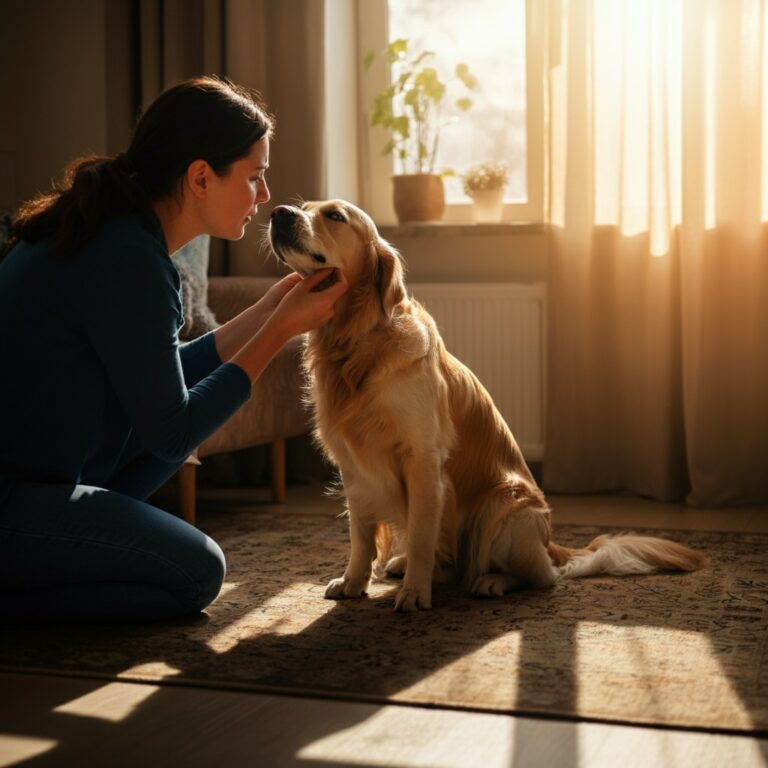
Caring for the elderly presents unique challenges, from addressing loneliness to supporting mental and physical well-being. But in this quest for better elderly care, there’s an often overlooked, yet incredibly effective solution with a wagging tail, a purring engine, or even a splashy little home: pets. The relationship between pets and elderly care is heartwarming and profoundly impactful. This blog explores the myriad ways pets enhance the lives of seniors and how organizations and families can better integrate animals into elderly care.
Why Pets Matter in Elderly Care
Loneliness and isolation are common struggles among elderly individuals, especially for those living alone or in care facilities. Studies by organizations like the CDC have confirmed that social isolation significantly increases a person’s risk of premature death, rivaling risks associated with smoking and obesity. Enter pets, the furry, feathered, or aquatic companions that can transform lives.
Pets provide companionship, encourage routine activity, and offer emotional support. They are not just animals; they become confidants, sources of humor, and bundles of unconditional love. For seniors, having a pet isn’t just about owning an animal; it’s about rekindling purpose and building a daily bond.
Mental Health Benefits of Pets for Seniors
Fighting Loneliness and Offering Companionship
A wagging tail or a soft purr can be just what the doctor ordered for someone feeling alone. Pets are excellent companions who create a sense of presence and routine in an elderly person’s life. This companionship reduces feelings of loneliness and fosters emotional well-being.
Easing Depression and Anxiety
Interacting with pets has been proven to increase the release of serotonin and dopamine, the brain’s “feel-good” chemicals. Activities like stroking a cat or playing fetch with a dog relieve stress, lower cortisol (stress hormone) levels, and reduce symptoms of anxiety and depression.
Cognitive Stimulation
For elderly individuals experiencing memory challenges or beginning stages of dementia, pets can provide a form of cognitive stimulation. Talking to and caring for a pet requires thought, planning, and interaction, which can enhance mental alertness.
Physical Health Benefits of Pets for Seniors
Boosting Activity Levels
Caring for a pet inherently increases daily activity. Taking a dog for a walk, playing with a cat, or even cleaning an aquarium fulfills a need for physical movement. For seniors, these small yet consistent actions can improve cardiovascular health and overall mobility.
Improving Heart Health
Research from the American Heart Association highlights a connection between pet ownership and lower cholesterol, healthier heart rates, and decreased blood pressure. The simple presence of a pet can have profound physiological effects.
Enhanced Rehabilitation
Pets have even been incorporated into physical therapy programs for seniors. From guiding physical movements during exercise to boosting morale during rehabilitation routines, animals have shown remarkable value in helping individuals recover from illness or injury.
Emotional and Social Benefits of Pets for Seniors
Providing a Sense of Purpose
Owning a pet gives seniors a renewed sense of responsibility. Knowing that a pet depends on them for care fosters a sense of purpose, which is incredibly important for mental resilience.
Continues after advertising
Bridging Social Connections
Pets act as social magnets. Whether it’s a chat with the neighbor about their dog’s antics or encounters with other pet owners during a walk in the park, pets help seniors foster social interactions.
Creating Joy and Laughter
Sometimes, it’s the simplest things that bring the most joy. A playful puppy chasing its tail or a cat lounging in unusual places adds moments of lightheartedness to an elderly individual’s day. Such moments cultivate positivity and emotional balance.
Are Pets Always the Best Choice?
While the rewards are clear, owning a pet may not be suitable for every senior. Factors like allergies, physical limitations, or financial concerns can impact readiness for pet ownership.
Alternatives to Full-time Pet Ownership
For individuals who can’t care for a pet full-time, alternatives like pet therapy programs, fostering animals, or spending time with a family member’s pet can provide similar benefits without the long-term commitment.
The Role of Animal-Assisted Therapy in Elderly Care
Animal-Assisted Therapy (AAT) is another fantastic avenue to explore. AAT involves specially trained animals brought to senior care facilities to interact with residents in a controlled, therapeutic environment. Programs involving therapy dogs, cats, and even birds or mini-horses have shown to improve both mood and physical health in a short span of time.
5 Steps to Introduce Pets into Elderly Care
- Assess Readiness
Ensure the senior person is physically, emotionally, and financially ready to care for a pet.
- Choose the Right Pet
Consider energy levels, allergies, and housing conditions. While dogs may suit active seniors, cats or fish might be better for those with mobility restrictions.
- Prioritize Training
If the senior chooses a dog, consider breeds that are gentle and less demanding. Proper training ensures that the pet is well-behaved and able to accommodate its owner’s needs.
- Foster Before Committing
Encourage seniors to foster pets temporarily before making a full-time commitment. This trial period helps assess compatibility.
- Community Support
Engage family members, caregivers, and even local pet organizations to provide ongoing support for elderly pet owners.
Read More👉 How Much Water Should Your Pet Drink Daily?
Start Small, Think Big
Whether it’s a loyal Labrador, a calming cat, or even a goldfish, integrating pets into elderly care can unlock myriad benefits that support mental, physical, and emotional well-being. Even as challenges to full-time pet ownership exist, alternatives like fostering or therapy animals ensure that every senior can experience the joy and comfort of a furry companion.
Pets do more than just make life more enjoyable; they make life healthier and fuller. They warm hearts, calm minds, and enrich lives in ways that go beyond measure.
Are you considering introducing a pet into the life of a senior you care about? Share your thoughts or questions in the comments—we’d love to hear your stories!



